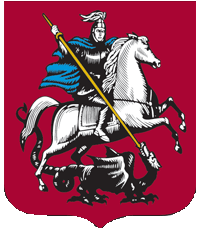|
|||||||||||||||||||||||||||||||||||||
| Russia's Elite on Its Home Turf Rublevka is a rural area that used to attract the aristocracy, people's commissars, and general secretaries has been swept by a wave of bourgeois liberalism. Veteran dacha-owners are enthusiastically embracing new standards of life, refusing to trade in a humble cabin with a tiny vegetable garden for a spacious apartment in downtown Moscow.
The ascetic commissars, among others, took a liking to this pristine environment. The formidable Dzerzhinsky (founder of the NKVD Soviet secret police agency, forerunner of the KGB. - Ed.) loved lying in the sun at Gorky-2. Maxim Gorky often enjoyed himself at industrialist Savva Morozov's stately residence in Uspenkoye. Even Vladimir Ilyich Lenin, after a hard week's work, was not averse to fox hunting in the woods around Usovo and Barvikha in the company of his party comrades. The Soviet Era
In 1921, a railway line was laid near the village and regular service was launched, which immediately produced a positive effect on the demographic situation, the cultural level, and agricultural development. According to the 1923 census, Razdory had a population of 200, not counting the well-known artist Malevich, who liked visiting Razdory - presumably, to gather enough impressions for his Black Square. The dacha idyll in Razdory ended with the outbreak of the Great Patriotic War. In the fall of 1941, a defense line passed here, while later the dacha compound was used as a guerrilla training camp. A joke making the rounds during the perestroika era had it that some of the guerillas were still patrolling the woods. This is inconsistent with reality. There are plenty of patrollers in Razdory even without the guerillas: There are two guards and five closed-circuit TV cameras per inhabitant there. This is because, just as before the war, the area is inhabited by very important persons from the Tax Inspectorate and the Audit Chamber. In place of plywood huts, modern-day commissars have red-brick stately residences. Lurking behind the trees and fences is one of Mikhail Gorbachev's dachas. Second Wind
The fences, bristling with closed-circuit TV cameras, are unbearably long and cheerless - like the prison sentences for statutory crimes envisioned in the penal code. But at any rate, the residents should have nothing to worry about. One of the neighbors, according to locals, is Roman Abramovich, the owner of football team; a little further on is the residence of a certain Lekha, a mafia boss and thief of "Highest Authority". Every morning Lekha is picked up by a chauffeur-driven car with flashing lights and blue number plates so it could well be that he is some big shot, a Cabinet member or a State Duma deputy. New living standards occur at every step. A person can literally trip over the numerous stores, casinos, and restaurants. The impression is that the dacha dwellers keep buying things, eating, and gambling away their money all the time. Rublevka observers say that the onset of a quiet and measured rural life is highly indicative. For one thing, it indicates that the chaotic period of the formation of the Moscow bourgeoisie is now over. Second, its core has evolved - comprised not simply of money bags but of really outstanding personalities. According to Forbes magazine, Russia ranks second in the world in the number of billionaires. The latest poll conducted by the All-Russia Center for the Study of Public Opinion on Social and Economic Questions (VTsIOM) shows that 39 percent of respondents "are ashamed for Russia," 15 percent would like to be among the billionaires themselves, and 15 percent are curious about them. One-half of respondents have no objections to seeing their children among the superrich in the future. Sympathizers of the Communist Party of the Russian Federation (CPRF), Liberal Democratic Party of Russia (LDPR), and Rodina (Homeland), as a rule, do not wish such a fate for their offspring. |
|
||||||||||||||||||||||||||||||||||||
|
|||||||||||||||||||||||||||||||||||||


 ) + ')



